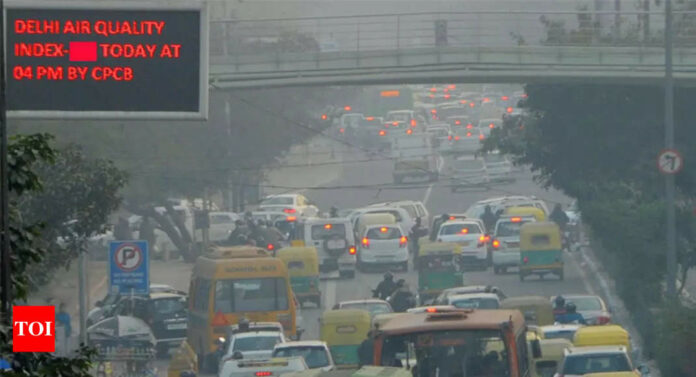It finds people in north India are still the worst hit by air pollution, with 510 million losing an average of 8.5 years of their life if 2019 pollution levels persisted. In terms of states, Delhi is still the most impacted, with the average person losing 9.7 years of life as compared to average life expectancy.

Delhi is still the most impacted, with the average person losing 9.7 years of life as compared to average life expectancy if WHO standards were being met, with Uttar Pradesh in second (9.5 years). If Delhi was able to bring down pollution to the national standards, Delhiites would still stand to lose seven years of their life. The annual average for PM 2.5 is 40 micrograms per cubic metre. The study, which analysed air pollution data from 1998 until 2019, also finds that while Delhi overall ranks as the worst state, Uttar Pradesh has the most polluted cities, with the PM 2.5 concentration in Allahabad and Lucknow 12 times the WHO guidelines. Residents of both these cities stand to lose on an average 11 years of their life.
“During a truly unprecedented year where some people who are accustomed to breathing dirty air, experienced clean air, it became acutely apparent the important role policy has played and could play in reducing fossil fuels that contribute both to local air pollution and climate change,” said Michael Greenstone, the Milton Friedman Distinguished Service Professor in Economics and creator of the AQLI along with colleagues at the Energy Policy Institute at the University of Chicago (EPIC). “The AQLI demonstrates the benefits these policies could bring to improve our health and lengthen our lives,” Greenstone added.
The AQLI is a pollution index that translates particulate air pollution into the expected impact on life expectancy. Developed by the University of Chicago’s Milton Friedman Distinguished Service Professor in Economics Michael Greenstone and his team at the Energy Policy Institute at the University of Chicago (EPIC), it quantifies the causal relationship between long-term human exposure to air pollution and life expectancy by combining hyper-localised, global particulate measurements.
The report states South Asia is home to the most polluted countries on earth, with Bangladesh, India, Nepal, and Pakistan accounting for nearly a quarter of the global population and consistently ranking among the top five most polluted countries in the world.


















